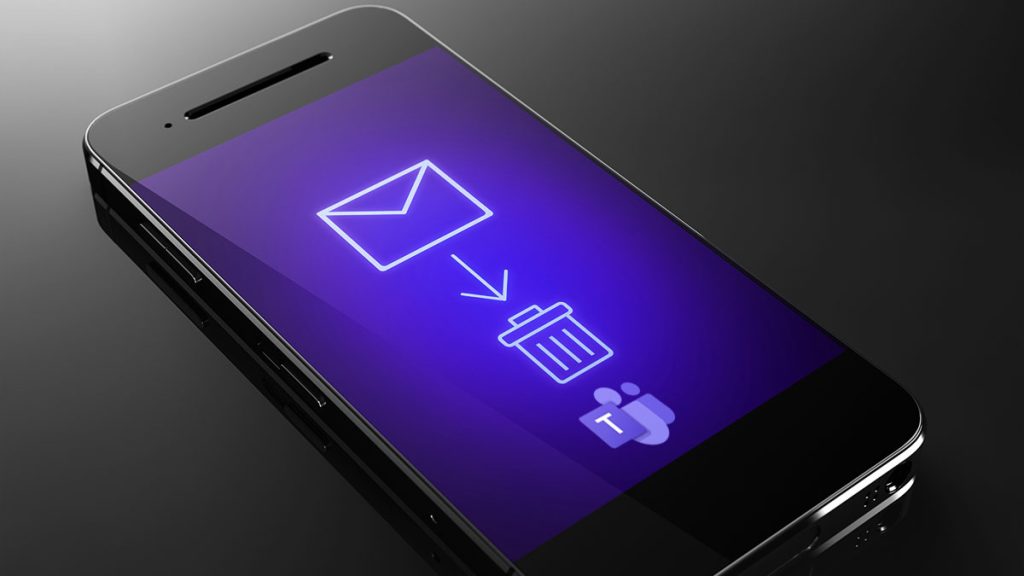
Emails Could Be Replaced as the Communication Staple
Emails have held their position as a centerpiece of workplace communications for years — they’re quick, simple, and free to use. But recent data suggest emails are slowly being replaced by real-time communication apps, like Slack and Microsoft Teams. So, in a time of instant messaging, is email still a relevant business tool? Here, Kristian Torode, Director, and Co-Founder of unified communications specialist Crystaline, shares his insight into the future of business communication tools and whether such tools will be the end of emails.
Emails are a huge part of most people’s day, and from a business perspective, they do have a purpose. Email is excellent for documenting conversations and providing an easily accessible paper trail for meeting minutes, policy distribution, and communication with clients or customers. It’s targeted too — only sending messages to specific, relevant personnel ensures that conversation remains on topic for productive comms. But despite its perks, is the email on the way out?
End of an Era
Recent data suggests that legacy office communications technologies like email are losing their dominance — for the first time, a small majority of users are favoring real-time messaging over email. So, what’s the reasoning behind the start of the email’s demise?
Most employees opening their inboxes each morning are faced with spam, newsletters, and other irrelevant content. You’d imagine that after 50 years of email, there’d be a solution to these inconveniences, but this seems to have just become an accepted nuance of the technology. But it’s not just inconvenient — identifying urgent emails that need immediate attention in a sea of irrelevance is a challenge, and many go amiss, hampering business operations.
Emails are a productivity killer too. According to McKinsey Global Institute the average individual spends 28 percent of their working day reading, writing, and responding to emails. Constant notifications interrupt employees, hindering people’s ability to complete deep-focus work, meaning it takes longer, and is more challenging, to get things done.
Real-time Results
Yet despite its flaws, email is still the king of business communication. But with new players entering the communication space, that might change, bringing with them what could be seen as the inevitable end of emails. The technological advancement of the last two decades has created a culture of instantaneity — in personal and professional spheres, people are increasingly expecting to get results instantly.
The same goes for messaging. Waiting two to three business days for a reply to an email doesn’t cut it nowadays. People expect instant responses, which real-time messaging platforms like Microsoft Teams and Slack can offer. With the en masse shift to remote working, these platforms have exploded in popularity, especially for internal communication.
Additionally, the entry of Gen Z into the workforce is shaking things up, making them one of the leading factors that could bring the inevitable end of emails. As the first generation of digital natives — a generation bought up with technology and the Internet — Gen Z has higher expectations from the technology they use and for most, email is too clunky. According to a survey conducted by SendGrid, only 36 percent of Gen Z feel email is essential for internal communication, favoring instant messaging.
Increase the Options
Fortunately, you don’t have to rely on just one communication channel — but combining several must be done right. Most of the time, combining technologies typically results in disjointed setups with organizations using several separate vendors for different tools — video conferencing, instant messaging, email, and hosted voice telephony.
The key is to give employees the choice by adopting a unified communications (UC) strategy. UC offers the dynamic integration of all business comms methods into one platform. Companies such as Crystaline offer complete UC installation, integration, and support through products like Vodafone One Net which joins up mobiles, landlines, desktops, laptops, and tablets so they work together seamlessly. Employees are flexible on which device they use and which comms channel they opt for.
While email still holds a place in business comms, in the increasingly digital working world, it shouldn’t be the only option. With several channels available, each with its own benefits, businesses should adopt a UC strategy to give personnel the freedom to communicate, collaborate and share information in the most efficient way for them — be it email, instant messaging, or phone calls. This raises the real question, will these business communication tools really be the end of emails, or are they just additional tools?
About Crystaline
Crystaline is a UK-based telecommunications provider offering business mobile, voice, data, cloud and unified communications services to small and medium sized businesses.
Through partnerships with top communications providers, Crystaline supports businesses in keeping up with fast-paced technological developments, with a focus on delivering exceptional customer service and technology without the jargon to help businesses grow.
To speak to our team of experts about how to adopt a UC strategy and to learn more about the products we offer at Crystaline, please get in touch.
Inside Telecom provides you with an extensive list of content covering all aspects of the Tech industry. Keep an eye on our Opinion section to stay informed and updated with our daily articles.